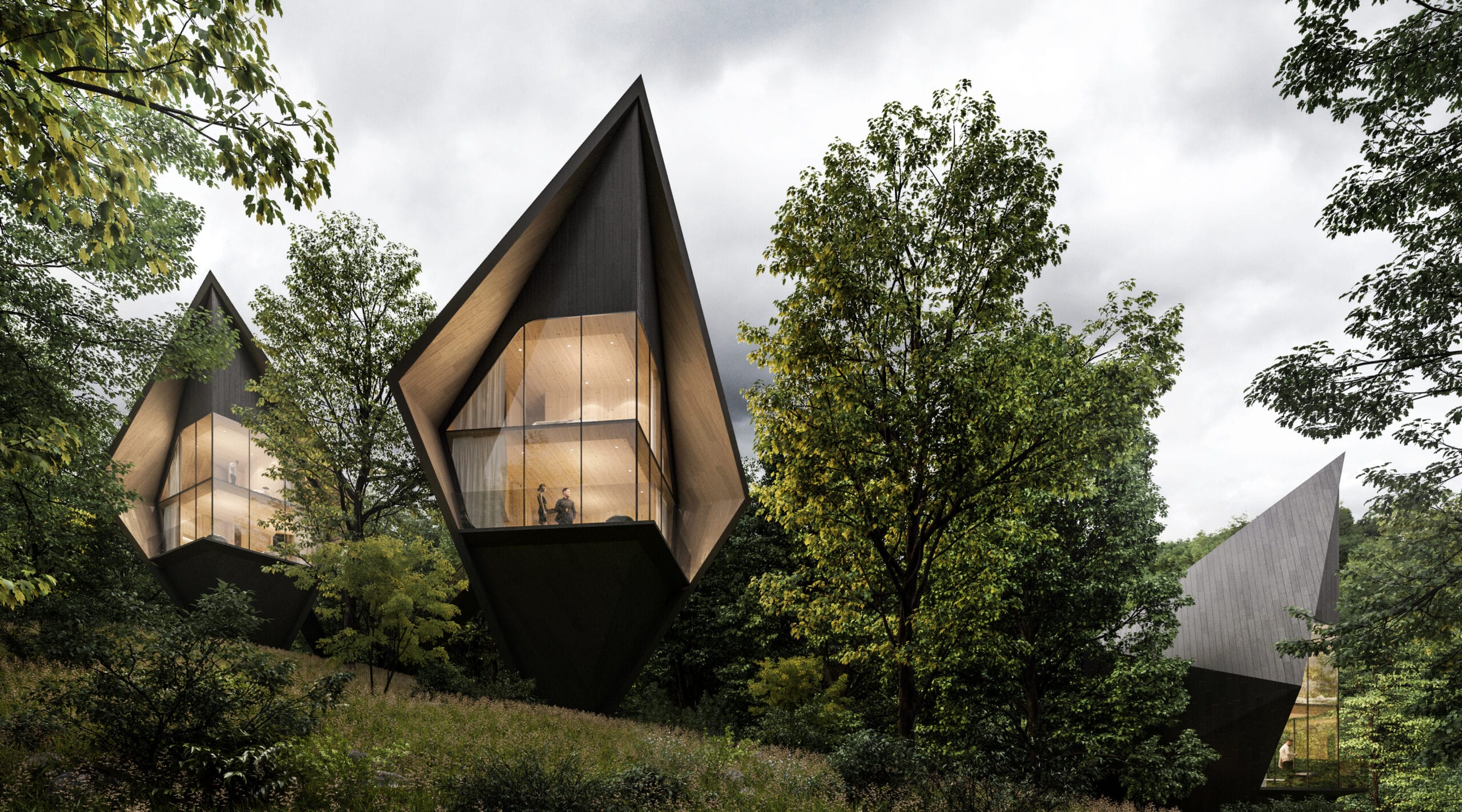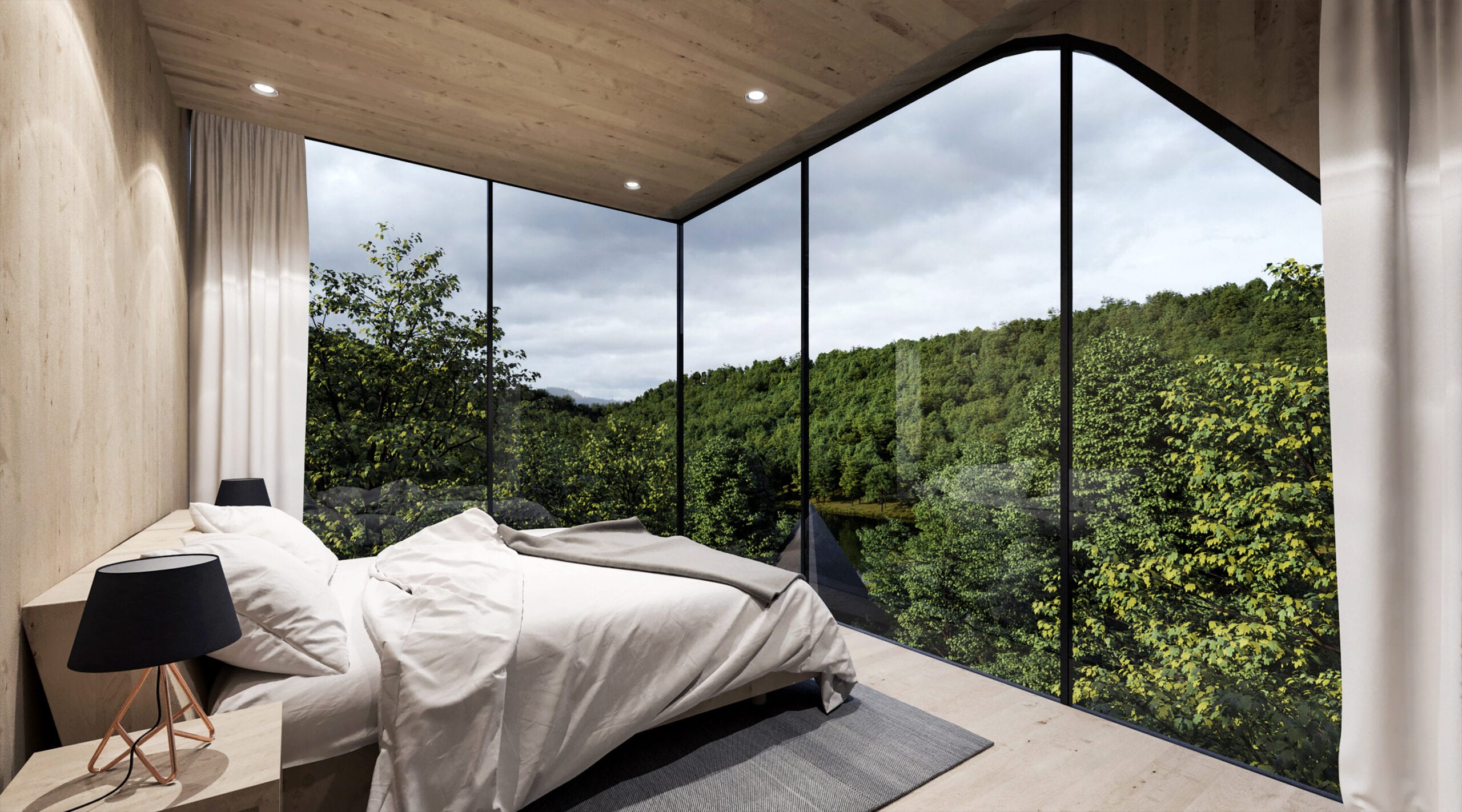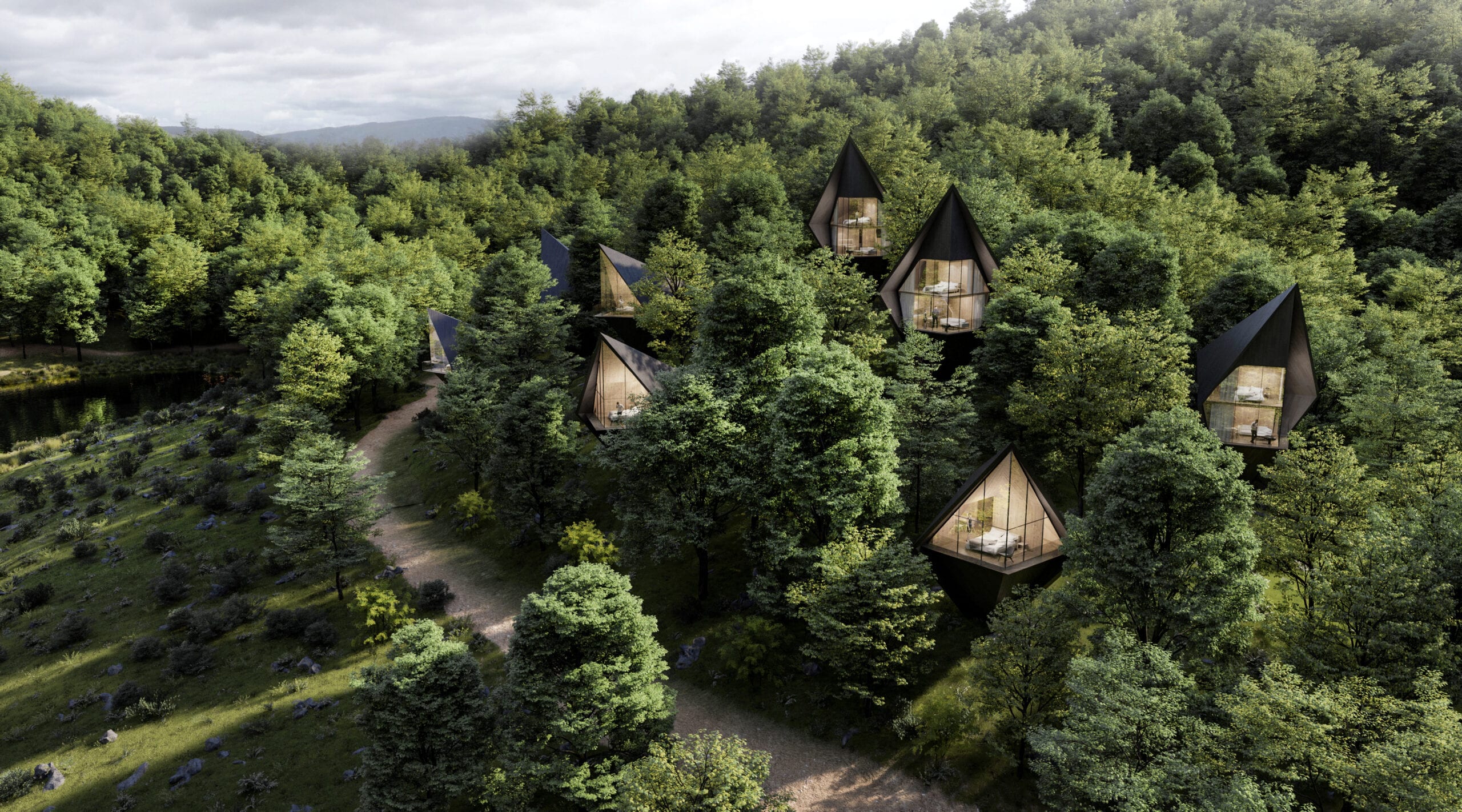
Dawson Lake Tree Houses to Offer Sustainable Escape Outside of Pittsburgh
by Amanda Waltz
October 12, 2020
Tree houses are no longer just for kids, as luxury versions have become destinations for adults looking for a unique wilderness escape. There are even television shows where teams set out to make a client's dream tree house a reality.
Besides being undeniably delightful, luxury tree houses also offer a more sustainable alternative to traditional hotels, both by design and as a way for guests to connect more intimately with the natural surroundings. Now Peter Pichler Architecture, a firm based in Milan, Italy, plans to bring this growing form of eco-tourism to West Virginia with a project on Dawson Lake, an area located four hours south of Pittsburgh.


The West Virginia tree houses created a buzz earlier this year when concept images appeared on a variety of design websites. Set to open in 2021, the project is meant to usher in a new era of eco-friendly tourism in the area, with eight planned units designed with the goal of creating zero emissions.
“Dawson Lake aims to become a global community concerned about the causes of climate change and is dedicated to finding innovative ways to mitigate the world’s biggest environmental challenges by reducing our carbon footprint,” says Peter Pichler, founder and principal at Peter Pichler Architecture.
Pichler says the tree house project was commissioned by a private client who owns the land in West Virginia. On its official website, Dawson Lake is described as a “holistic health spa and second-home community” located on 800 acres in the Appalachia Mountains. The project description adds that the tree houses will be part of a landscape featuring “a spring-fed 40-acre lake, restored meadows, streams and wetlands, and over 100 acres of perpetual land easements that form a protected habitat for native species.”
“Over the past decade, our client has been ideating a major sustainable project, a real epicenter of sustainable alternative energy,” he says.
The multi-level units, which will be made with a combination of steel and treated wood, will be part of a what Pichler describes as “much bigger project than a hotel.”
“The project will encompass sustainable buildings, conference and event center, a food and agriculture hub, health and wellness proposals, sustainable education workshops and a vast visual and performing arts programming,” he says.
“The interesting part of the story is that we published the project images in our social media and our client in West Virginia contacted us right away willing to build them in United States,” says Pichler, adding that the concept has since changed to fit the location and the client’s requests.
Pichler explains that the project will be environmentally friendly for a few main reasons. He claims the team building the tree houses will work exclusively with materials and companies local to West Virginia. This includes treated lumber from trees native to the area.
Also, Pichler says the conception of the project was “motivated by a slow-tourism experience,” referring to a type of travel that emphasizes staying in one place and disconnecting from the stress of normal life. As opposed to popular forms of travel, like backpacking or cruises, slow-tourism is seen as a way to combat tourist burnout (or, as the tired joke goes, needing a vacation from your vacation). In terms of environmental impact, it means travelers won't using as many resources to get from place to place on planes or cruise ships.
In an official statement, Peter Pichler Architecture said, “We believe that the future of tourism is based on the relationship of the human being with nature. Well-integrated, sustainable architecture can amplify this relationship, nothing else is needed.”

Love to know when it opens for guests!
Will do! Hope to do a follow up!
is there an open date yet?